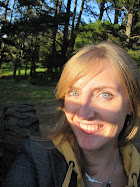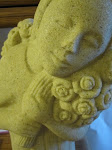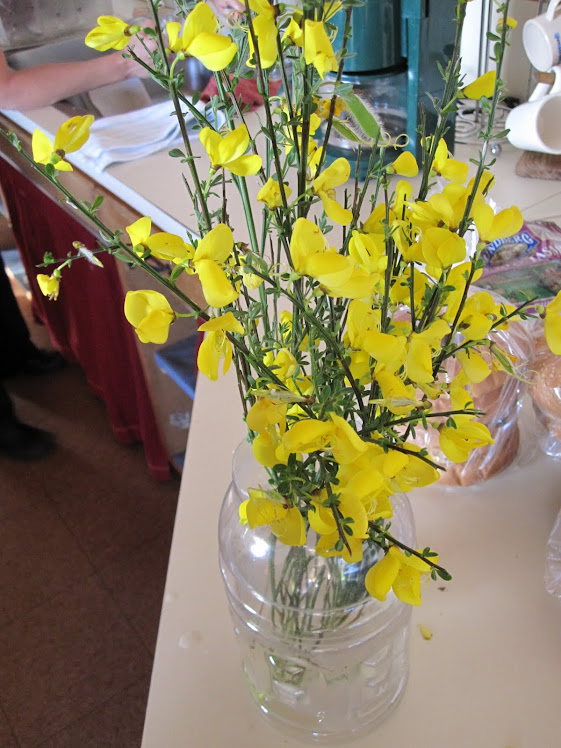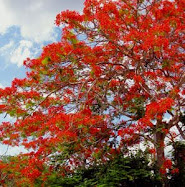A Reflection the UU Church of Riverside
"Marking the Moments: Two Journeys to the Sacred"
October 25, 2010
"Return again
Return again
Return to the land of your soul
Return again
Return again
Return to the land of your soul
Return to who you are
Return to what you are
Return to where you are
Born and reborn again"
-Rabbi Shlomo Carlbach
As many of you know, there is one land in particular that I have a tendency to return to.
Initially, upon hearing the song “Return Again” my mind, of course, went to India. I return there twice a year, a trip I find I have come to depend upon spiritually, emotionally.
But, I am no sadhu. I don't go for temples or mosques or immaculate cathedrals of pilgrims. I don't do yoga, I don't meditate, and I eat meat. Which is a big deal, if you know me.
So, life in India actually looks a lot like life in America. I dwell in net cafes and sit at computers and create worksheets on higher education in Indian-English. I go for long bus rides to schools (AKA commute). I go to hotel conference rooms full of antsy, Indian high school students. I go to teach the hokey-pokey as my greatest artifact of American culture.
Yeah, thats great. But this song does not say “Yes, return again, go to where you feel really useful and you get to slough off the confines of a culture you don't identify with” it says “Return again to who you ARE, to what you ARE, to where you ARE...”
He isn't talking just about OUT THERE... he is talking about HERE.
Here, deeper than the place I physically stand, is the land of my soul. The land of the sacred.
But, there is great power in the place where we stand and the people who stand with us. The truth is that these two physical terrains and communities (America and India) offer “frames of reference” by which I understand the inner land, the sub-altern land of my soul. My soul is replenished by my work in India, my experiences there inform and fatten my soul self-- a soul self that is often over-extended, exhausted and tired in America. America values a driven woman. America values my go, go, go attitude.
India does not.
In bold over-simplification, India values my time in a different way. India values more my participation-- not necessarily my leadership. They value my participation in meals or at family visits. They value my participation in making important decisions about marriages or what rice we should cook for dinner that night, or how many computers we should put in the net cafe we just purchased. If I drop someone off at a house, I better be ready to come in and spend some time with the family who owns that house.
Now, I won't be so naïve as to believe America doesn't want my participation. I know my friends and family want it. But I will say that I think we fear asking each other for participation... I know my mom usually prefaces her requests for my participation with “This is no pressure on you, but if you are free and you can and it won't stress you out, will you...” Does this signal to me that I've communicated to my mother that I over-value my work when my ritual relationship to her is far more important? Yes.
Because ritual is not about “getting things done.” I don't think its really about the final product. Ritual is about participation. Being present. Being aware. Being attentive.
Confucius's great lament was about the state of ritual itself. In the Analects he actually demands your attention, asking “Is ritual nothing but bells and whistles?” He asks for more than our chimes. In Confucianism, rituals should establish a pattern of relatedness. Focus us on being more attentive to others, more responsive to the needs of our society, and more attuned to the natural world. Its not about the bells and whistles, its how the bells and whistles bring us together-- they force us to return again to one another, to be reborn in relationship to one another.
This summer in India I had four days of “vacation” between my first group of USA volunteers and my second group of USA volunteers. I was exhausted. Those four days were a beacon for me of possibility. Those four days embodied my hopes for the summer.
And, on the very first day of my four day vacation, my “sister” Amala called in tears. Grandfather died.
This was big. You may or may not know this, but Hindu funeral rituals last for 30 days. You can imagine the American side of me that was just a little freaked out by this. Because, for the next 30 days, I had two leadership camps planned, 6 university students on their way along with 2 high school students. My schedule did not allow for 30 days of ritual participation.
But this was big for far more important reasons than my schedule. Not only did Amala live with her grandparents, they had been her and her mother's shelter, their beacon, from an abusive marriage. I had met grandfather once. We had waived across a busy Indian street. I was in a rush to go somewhere, to get something done. I am, after all, American.
When I arrived at their house that morning, scores of people were already preparing the street outside with chairs and banana leaves. And, as I approached by bike, I could see the incense smoke literally billowing out of the front door. Removing my shoes, I entered a room of 10 or 11 women that sat in a circle around Grandfather's body... he was laid out on the bed, covered in flowers. I laid my own garland upon him, touching my fingertips to his toes and pressing my palm to my forehead.
Mother reached out to me, crying, holding and pulling on my shawl and kurta.
Grandmother looking up and saying, in Tamil, “You only saw him just last week! He was standing before you just last week!”
I didn't know what to do, I didn't know what to say. I was a quiet participant, always observing, unsure what to do next. There was no way in this situation that I could be a leader. All I could do was offer my presence as part of rituals in which I had no clue what was going on.
But the ritual ITSELF was not what mattered. My understanding of its origins didn't matter. Why the heck am I eating these flower petals falling from the funeral group off the ground? Oh my god, that is a dead body and I'm rubbing sandalwood all over it. All of it. It doesn't matter, Samantha.
It was my presence that mattered. Grandmother watched me from the door way. It mattered to her. Ma got in line to pray at Grandfather's altar WITH me. It mattered to her. It was my willingness to participate that was important. My participation, my slowing down, was my responsiveness, my attuning to the needs of my community. This is what mattered.
And this, this is the short description of my journey to the sacred: participating and responding to the needs of my community.
And it returns me to life here. I told you at the beginning of this reflection that I return again to India, twice a year, as a participant.
But how do I participate in America? How do I want to participate in America? How do I take meaningful and intentional actions that bring me into the sacred with the people around me? How do I “return again” in the land of my physical birth? Is my life nothing but bells and whistles!?
I know what I need to do.
I need to create a family culture where the most primary fig ures in my life, my mother and father, feel comfortable ask ing for my presence.
I need to purify myself of the belief that I am valued for my leadership or my ambition, but not valued for my being.
I need to visit my grandmother.
I need to honor those people who give their presence to my life. Who participate for me-- not because they are leading me somewhere or because they have a stake in the out comes, but because they know it matters to me.
Lastly, I need to honor my own presence: my attentiveness to my needs, my relationship to my self, and my body's relationship to this world. In India, I journal at least twice a day... I need to buy myself flowers, write myself love letters and letters of gratitude, to break bread with the same tenderness as I would surrounded by my sacred community.
Thus, with each coming and going, with trip and each return, it becomes more and more clear to me that it is my time in India that teaches me how to be a better participant in America.
Blessed be.
Tuesday, June 1, 2010
Subscribe to:
Post Comments (Atom)










No comments:
Post a Comment